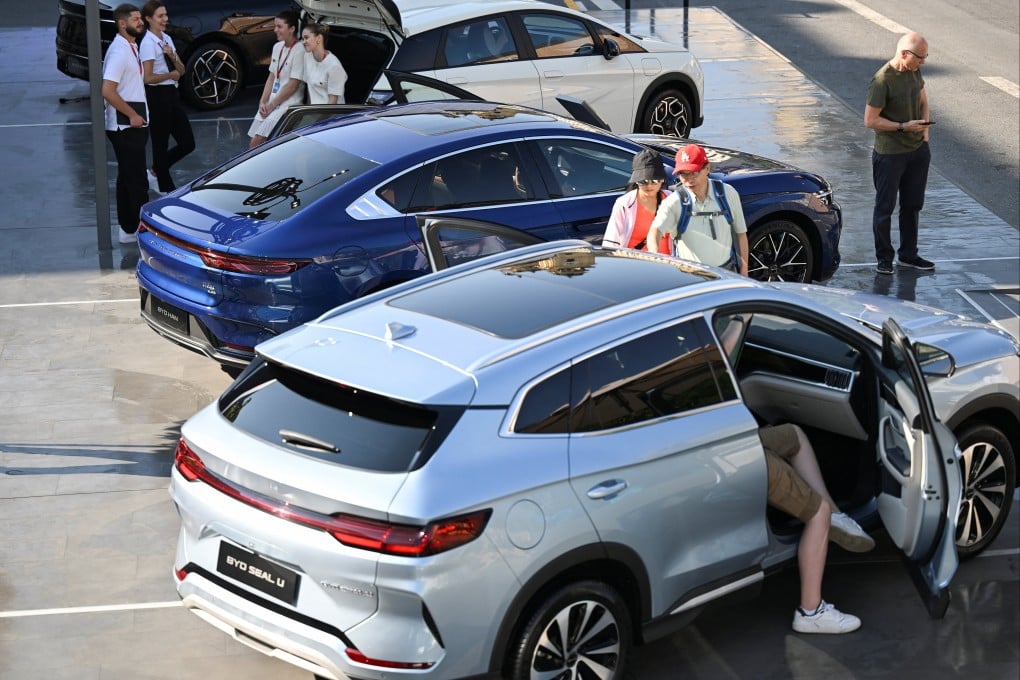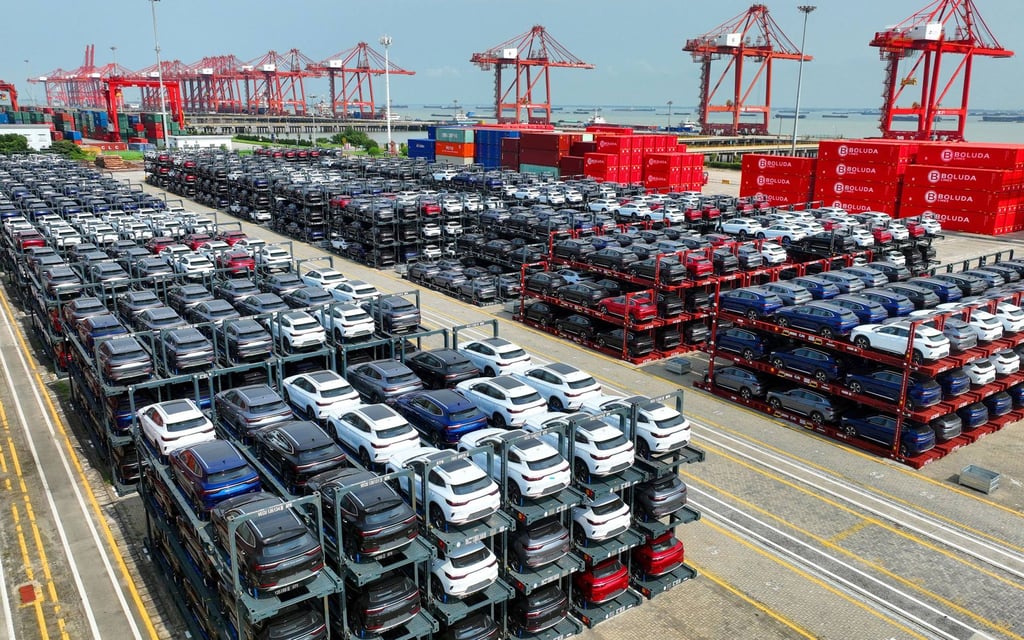Top Chinese EV makers like BYD poised for global expansion by 2030 thanks to ‘overwhelming’ cost advantages: UBS
- The vast European market and its surging EV adoption rate will be a catalyst for Chinese EV makers’ go-global push, bank says
- Chinese-made cars will control 33 per cent of the global market by 2030, up from 17 per cent last year, USB predicts

Efficient control of the supply chain and a cost edge in batteries will make Chinese electric cars more attractive to overseas customers, while China’s challenging economic outlook will intensify globalisation efforts by BYD and its domestic rivals, according to the Swiss bank.
“We expect a handful of Chinese EV leaders to expand their production footprint globally, with Europe being a top priority,” said UBS analyst Paul Gong. The vast size of the European market and its surging EV adoption rate – likely to hit 100 per cent of sales by 2035 – will provide a catalyst for Chinese EV makers’ go-global push.
Gong singled out BYD, the world’s largest EV builder backed by Warren Buffett’s Berkshire Hathaway, as one of the Chinese top carmakers to extend its reach beyond mainland China. He did not name a second player.

UBS predicted that Chinese-made cars, benefiting from a faster pace of electrification in the world’s automotive sector, will control 33 per cent of the global market by 2030, up from 17 per cent last year.
Established international marques that mainly build petrol vehicles, including Volkswagen and Toyota, will largely lose market share over the next seven years, falling to a combined 58 per cent of global automotive sales by 2030, down from 81 per cent now, Gong said.